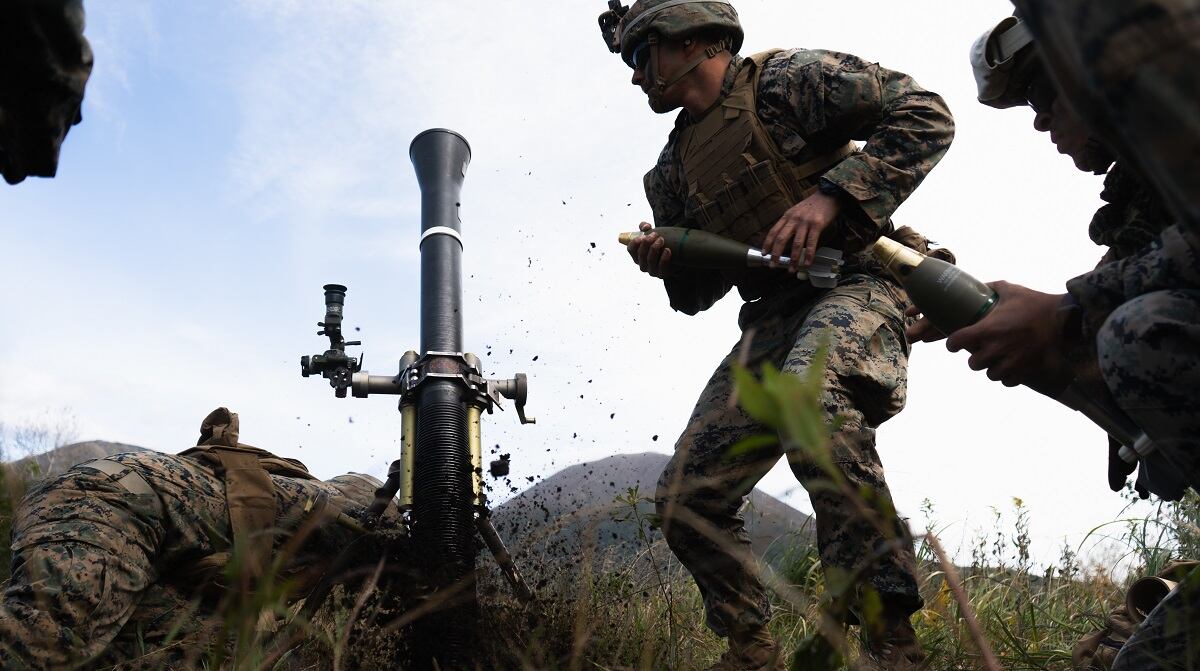SANAA, Yemen — A suicide car bombing claimed by the Islamic State in Yemen's southern city of Aden on Monday killed at least 54 pro-government recruits, officials said, underscoring how the militant group has been able to exploit Yemen's civil war to stage large-scale attacks.
In the attack in Aden, the men were gathered at a staging area near two schools and a mosque when a pickup truck suddenly accelerated through the building's gate as a food delivery arrived, exploding amid the crowd, witnesses said.
"Bodies and body parts are scattered all over the place," said Mohammed Osman, a neighbor who rushed to the scene. "It was a massacre."
The death toll steadily rose through the day and by mid-afternoon, the director of Aden's Health Ministry, Khidra Lasour, said 54 had died from the explosion. Almost 70 people were wounded, including 30 seriously, and were being treated in area hospitals.
Security officials, speaking on condition of anonymity because they were not authorized to speak to the media, identified the bomber as one Ahmed Seif, distributing a photo of him smiling and holding an assault rifle next to a flag used by Islamic extremists as well as a rocket-propelled grenade launcher.
Yemen is embroiled in a civil war pitting the internationally recognized government and a Saudi-led coalition against the Shiite rebels known as Houthis, who are allied with army units loyal to a former president. The fighting has allowed al-Qaida and an IS affiliate to expand their reach, particularly in the south.
The recruits were signing up to join a new unit the Saudis hope will ultimately be made up of 5,000 fighters. After some training, the new force will deploy to the Saudi cities of Najran and Jizan, near the border with Yemen, the officials said.
Hundreds have already arrived in the border province of Jawf and the adjacent province of Marib. The Houthis control most of northern Yemen, including the border regions and the capital, Sanaa.
Aid group Doctors Without Borders reported on social media that their hospital in Aden had received 45 dead.

Fighters loyal to the government gather at the site of a suicide car bombing on Aug. 29, 2016, in Yemen's southern city of Aden, Yemen. The bombing claimed by the Islamic State group in Aden has killed over 50 pro-government troops who had been preparing to travel to Saudi Arabia to fight Houthi rebels in Yemen's north.
Photo Credit: Wael Qubady/AP
The IS-run Aamaq news agency said the attack was carried out "by a fighter from the Islamic State who targeted a recruitment center." Later, another statement circulated by IS called the bomber a "knight" who had purportedly killed some 60 coalition fighters.
Ahmed al-Fatih, who had been working at the center, said security at the site was lax.
"There was no consideration of security," he said. "So it was easy for al-Qaida or Daesh to pull off such an act," he added, using an Arabic acronym to refer to the Islamic State group.
Most of the recruits are men in their early 20s, unemployed, according to the officials, and mostly from the southern provinces of Abyan, Dhale, and Lahj. Eleven bodies from the attack were taken by ambulances to the town of Koud, where they were buried collectively, officials added.
One of the recruits killed was 27-year-old Mohammed Nasser, whose mother said he hadn't been able to find a job since graduating from the Aden University four years ago. "I didn't want him to go," she said, sobbing. "But I never expected him to return a dead body."
The U.N. and rights groups estimate that at least 9,000 people have been killed since fighting escalated in Yemen in March 2015 with the start of Saudi-led airstrikes targeting the Houthis and their allies. Some 3 million people have been displaced inside the country, the Arab world's poorest.
U.N.-mediated peace talks in Kuwait were suspended earlier this month with no signs of progress.
The Houthis and forces allied to former President Ali Abdullah Saleh seized Sanaa in September 2014, forcing the internationally recognized government to flee the country. The Saudi-led campaign against the Houthis has pushed them out of southern Yemen, but has failed to dislodge them from the capital and the rest of the north.
Also on Monday, a delegation of Houthis met in Baghdad with Iraq's Foreign Minister Ibrahim al-Jaafari to discuss the war and fruitless peace talks.
The Houthis and Iraq's Shiite-led government are closely allied with Iran. Al-Jaafari in a statement reiterated the Iraqi government's opposition to the Saudi-led military intervention in Yemen, saying it contributed to bloodshed and instability.
The Yemeni delegation was headed by Yehia Badreddin al-Houthi, a political leader among the Houthis and the brother of Houthi leader Abdul Malik al-Houthi. They additionally briefed al-Jaafari about their recent decision to form a political council with the party of Yemen's former president.
That decision, which was criticized by Saudi Arabia and other Gulf countries, gives the rebels and their allies control of much of the north, including the capital Sanaa, and leaves President Abed Rabbo Mansour Hadi's loyalists with control of most of the south.
Associated Press writers Bassem Mroue in Beirut and Qassim Abdul-Zahra in Baghdad contributed to this report.





